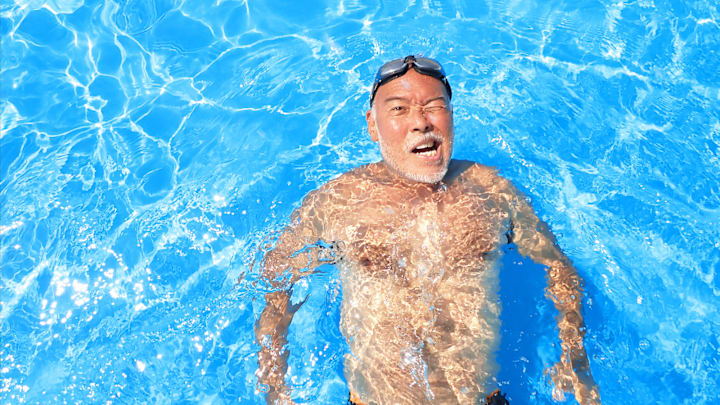Swimming is a terrific, low-impact exercise, which is why plenty of people make it part of their regular fitness regimen. But if you spend enough time in the water, you might notice that your bladder seems more active than when you’re on dry land. One study found that a 110,000-gallon pool contained roughly 8 gallons of urine. Does being immersed in water suddenly increase your urge to go?
Turns out the answer is yes. The reason is something known as immersion diuresis, a term for the body increasing its urine output in response to being submerged in water. Your blood vessels constrict, moving blood to your internal organs. That raises your blood pressure, which can increase activity in your kidneys because the body wants to release fluid to compensate for the arterial changes. The net result: the urge to pee.
Your kidneys can also act in response to water pressure, which can increase when you dive further down. Again, blood pressure is increasing, and your kidneys are filtering out more fluid.
Immersion diuresis increases with cold water, which makes it more of an issue in open bodies rather than heated pools—though simply being in the pool for long periods of time can result in a normal need to urinate. Nerves can have an effect, too. Plenty of Olympic swimmers have admitted to peeing in pools.
Peeing with an athletic legacy on the line is one thing. Opting whether just to go while playing with a pool noodle in a friend’s above-ground pool is another. If you need to go, should you go? In open water, it’s not really an issue. Plenty of distance swimmers let loose. In a swimming pool, the answer is trickier. While some bacteria exists in urine, it’s generally not enough to make you or others ill, particularly when a pool is being treated with chlorine. It’s more about manners. Since it’s fairly rude to force others to swim around in a mixture of pool water and your own body’s waste, you should probably find the bathroom.
[h/t U.S. Masters Swimming]
